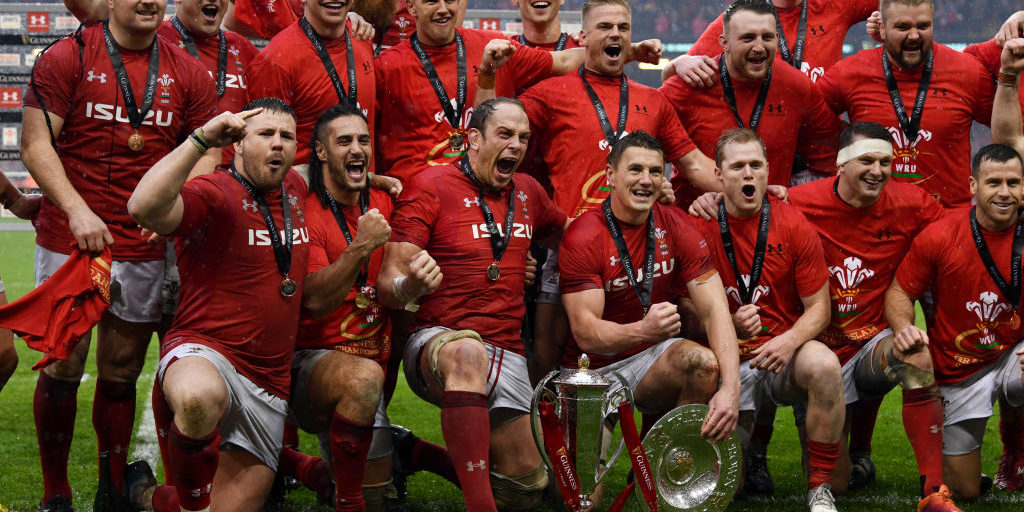
The Six Nations have opened preliminary talks aimed at securing the biggest television deal in rugby history that could be worth £750m over five years.
As well as inviting bids for rights to the world’s oldest annual international event in any sport, the Six Nations are planning to put a brand new competition on the market by revolutionising the autumn series.
For the first time England, France, Ireland, Italy, Scotland and Wales are pouring all their international fixtures into one pot designed to increase revenue. Whether they succeed will depend on how they convert a series of November friendlies into a meaningful inter-hemisphere tournament.
Creating a brand new event with real commercial clout is one reason why the private equity firm CVC Capital Partners are in the throes of finalising negotiations to buy a 30 per cent stake in the Six Nations reported to be worth circa £500m. Within months of receiving their offer, the Home Unions vetoed a World Rugby scheme to create a global 12-nation League.
CVC’s triple-pronged move into the sport, following the purchase of similar stakes in the Premiership and PRO14, has raised fears that the Six Nations’ exposure to mass audiences on terrestrial television are numbered.
BBC and ITV, who joined forces six years ago to outbid Sky and prevent rugby’s blue riband event following football, Test cricket and The Open golf championship down the satellite route, know they face more severe competition over renewing their contract.
Their shared coverage of the Six Nations which runs out in 2021 is understood to be worth around £90m for this year’s 15-match series starting in February. Sky’s long-running rights to England’s autumn fixtures, believed to be worth £30m to the RFU, are due for renewal next year.
‘’The Unions’ collective aim will be to generate around £150m a year from television rights,” a leading expert on the subject deals told The Rugby Paper. ‘’If they get that kind of money, then how much say are the broadcasters going to have in running the competitions?
‘’The other big question is how do you make the autumn matches more than an unrelated set of one-off friendlies? One idea, and this comes from within one of the Unions, raises another question: Why not repeat the Six Nations in November?
‘’I can see the question being discussed but I can’t see it happening because there would be a real danger of over-exposure. Put too much out there and you devalue the event. Too much and it becomes boring.
‘’The unique charm of the Six Nations is that it happens once a year. You start expanding it into a League to include home-and-away fixtures and you lose that charm. Less is more.
‘’Rugby is not football. You do not have a couple of hundred countries across every continent in the world wanting television rights. Rugby is a very limited market. Is China going to come to the rescue with new money? Hardly.
‘’They could make the overall package pay to the tune of £150m a year but the bulk of it will have to come from two markets – France and the UK despite the fact that our market is a declining one.”
Rugby knows that to its cost. The Rugby Paper revealed last year how the Six Nations lost a fortune as a consequence of over-estimating the value of their title sponsorship.
In September 2017, RBS offered £14m-a-year to renew their deal only for two of the Six, Scotland and Wales, to object, claiming that the tournament was worth more. Despite talking to more than 100 multi-national companies, not one was prepared to come anywhere close to the RBS figure.
Months later the RBS offer had shriveled to £9m. By the start of last season it was down by another third, to £6m. The Champions’ Cup have also been hit by depreciation on a similarly spectacular scale.
When the English and French clubs, backed by the Welsh regions, wrestled control of the competition from the Unions in 2014, Heineken was paying £10m-a-year. The clubs, adamant that the event had been undersold, claimed they would raise almost twice as much from six elite sponsors paying £3m each.
Heineken stayed in at the reduced price almost on their own. Last year they were restored as the title sponsor at almost half the price they had been paying four years earlier.
Six Nations’ chief executive Benjamin Morel has gone on record saying he would recommend that the Six Nations remains on terrestrial television. ‘’It makes it valuable for the Six Nations to have partners like BBC and ITV,” he said.


British and Irish Lions
Charlie Elliott: The 17 backs I would select for the British and Irish Lions























You must be logged in to post a comment Login